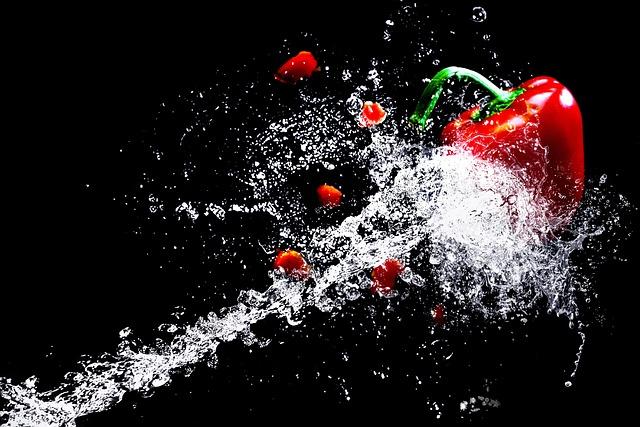
The Ultimate Guide to Building Muscle on a Vegan Diet
Building muscle on a vegan diet is completely achievable with the right approach. Contrary to popular belief, it is entirely possible to reach your muscle-building goals without consuming meat or animal products. In fact, some of the biggest and strongest athletes in the world follow a vegan diet and have achieved great success in their respective sports.
In this ultimate guide, we will cover everything you need to know about building muscle on a vegan diet. From the best plant-based protein sources to meal planning tips, we have got you covered. So, let’s dive in and learn how to maximize your muscle gains on a vegan diet.
1. The Importance of Protein
Protein is essential for building and repairing muscle tissue. While animal products are typically high in protein, there are plenty of plant-based sources of protein that can help you reach your daily protein needs. Some excellent sources of plant-based protein include beans, lentils, tofu, tempeh, chickpeas, quinoa, and nuts and seeds.
To ensure you are getting enough protein, aim to include protein-rich foods in every meal and snack. You may also consider supplementing with vegan protein powders to help meet your daily protein requirements.
2. Calories Matter
In order to build muscle, you need to consume more calories than your body burns. This is known as a caloric surplus. To determine your daily caloric needs, calculate your Basal Metabolic Rate (BMR) and then add in calories for activity level and muscle building goals.
It is important to focus on nutrient-dense, whole foods to ensure you are getting the proper nutrients your body needs to support muscle growth. This means including plenty of fruits, vegetables, whole grains, and healthy fats in your diet.
3. Meal Timing and Frequency
Eating consistently throughout the day can help provide your muscles with a steady supply of nutrients to support growth and repair. Aim to eat every 3-4 hours and include a source of protein in each meal or snack. This can help ensure that your muscles have the necessary building blocks to grow and repair.
4. Include Strength Training
In order to build muscle, you need to stress your muscles through strength training. This can include weightlifting, bodyweight exercises, or resistance bands. Consistent strength training workouts are crucial for stimulating muscle growth and repair.
Whether you are a beginner or have been weightlifting for a while, make sure to progressively overload your muscles by increasing the weight, reps, or sets over time. This will help ensure that your muscles continue to grow and adapt to the stress of exercise.
5. Recovery is Key
Rest and recovery are just as important as exercise when it comes to building muscle. Make sure to include rest days in your workout schedule to give your muscles time to repair and grow. Adequate sleep, hydration, and stress management are also important factors in supporting muscle growth.
6. Vegan Protein Sources
As mentioned earlier, there are plenty of plant-based protein sources that can help you reach your daily protein needs. Here are some of the best vegan protein sources to include in your diet:
– Beans: Black beans, kidney beans, chickpeas, and lentils are all excellent sources of plant-based protein.
– Tofu and Tempeh: These soy-based products are versatile and can be used in a variety of dishes.
– Quinoa: This gluten-free grain is a complete protein, meaning it contains all nine essential amino acids.
– Nuts and Seeds: Almonds, walnuts, chia seeds, and flaxseeds are all good sources of protein, healthy fats, and fiber.
– Vegan Protein Powders: There are many vegan protein powders available on the market that can help supplement your protein intake.
7. Sample Meal Plan
Here is a sample meal plan to help you get started with building muscle on a vegan diet:
– Breakfast: Overnight oats made with almond milk, chia seeds, and topped with fresh berries and almond butter.
– Snack: A smoothie made with vegan protein powder, banana, spinach, and almond milk.
– Lunch: Quinoa salad with black beans, corn, bell peppers, avocado, and a lime vinaigrette.
– Snack: Hummus and veggie sticks.
– Dinner: Stir-fried tofu and broccoli with brown rice.
– Snack: Greek yogurt with mixed nuts and seeds.
By following a balanced meal plan like this one, you can ensure you are getting enough protein, carbs, and fats to support muscle growth and repair.
8. Supplements
While it is possible to meet your nutrient needs through a well-rounded vegan diet, there are some supplements that can help support muscle growth on a vegan diet. Some common supplements to consider include:
– Vegan Protein Powder: To help supplement your protein intake and support muscle growth.
– BCAAs (Branched-Chain Amino Acids): These amino acids are essential for muscle repair and growth.
– Creatine: This supplement has been shown to improve strength and muscle mass in some studies.
– Vitamin B12: This essential nutrient is only found in animal products, so it is important to supplement if you are following a vegan diet.
9. Conclusion
Building muscle on a vegan diet is entirely achievable with the right approach. By focusing on nutrient-dense, whole foods, including plenty of protein-rich plant-based sources, and incorporating strength training into your routine, you can make significant gains in muscle mass and strength.
Remember to listen to your body, rest and recover adequately, and be patient with your progress. With dedication, consistency, and a well-rounded approach, you can reach your muscle-building goals on a vegan diet. So, get started today and start fueling your muscles with plant-powered nutrition.

















